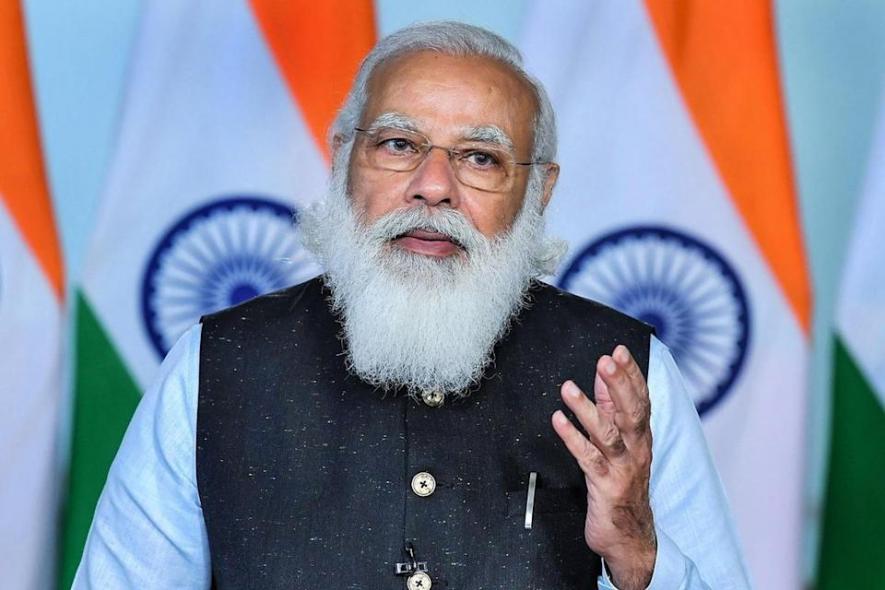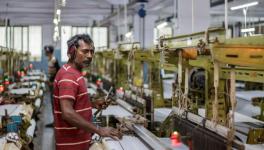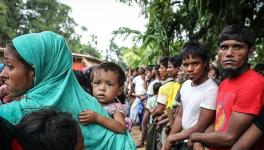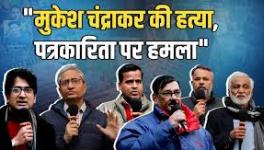How Modi’s Covid-19 Strategy Has Eroded Social Trust

Image Courtesy: Yahoo Finance
Days before Prime Minister Narendra Modi spoke to the nation on the night of 20 April, in a belated attempt to calm down India reeling under the second wave of Covid-19, migrant workers in cities had already chosen to return to their home states. They were unwilling to believe employers who beseeched them to stay put in cities, and are unlikely to heed Modi, who in his 20th April speech said, “I urge the state administration to boost the confidence of workers and convince them to stay where they are.”
The exodus of migrant workers is an eloquent testament to the decline in social trust or social capital in India. Social trust refers to the belief that governments, public institutions and people at large will work to the benefit of individuals. Or they will, at least, refrain from harming them. Different groups in any society have varying degrees of social trust. Political scientist Robert Putnam claimed, in his Bowling Alone: The Collapse and Revival of American Community, that “‘have-nots’ are less trusting than ‘haves’, probably because haves are treated by others with more honesty and respect.”
Scarred by their experience of arguably the world’s most stringent lockdown last year, migrant workers have dashed home, with the infected taking the virus along with them, as one state government after another imposes curfews to tide over the second wave of Covid-19 sweeping across India. Their departure demonstrates the link between social trust and the spread of Covid-19, a subject of surveys and studies in several countries.
Twelve such studies were reviewed by four political scientists—Daniel Devine, Jennifer Gaskell, Will Jennings and Gerry Stokers—in their paper, Trust and the Coronavirus Pandemic: What are the Consequences of and for Trust?, which was published in Political Studies Review. They put forward four postulates to predict how social trust can influence the community transmission of SARS-CoV-2, the virus which causes Covid-19. They also proposed a theory on the impact the pandemic can have on social trust.
By applying the postulates of the four political scientists to India, it becomes palpable that Modi’s policies to combat the Covid-19 pandemic has depleted India’s social capital, eroded the social trust of the middle class, the segment touted by Putnam to have immense faith in the system, and why India was caught off-guard as the tide of SARS-CoV-2 came rushing in. Indeed, the circle of distrust is likely to expand.
Implementation
The four political scientists posit: “Higher societal and political trust is associated with later adoption of restrictive policies.” Governments inclined to trusting people preferred to rely on them to regulate their behaviour, such as maintaining social distance or wearing masks, than to issue orders imposing restrictive policies. People largely reciprocated the faith their governments reposed in them. Lockdown was announced only when self-regulation failed to check the transmission of the virus.
By contrast, India’s response to SARS-CoV-2 was to impose a very stringent lockdown last year. It would seem the Modi government had little faith in the people voluntarily regulating their behaviour. Modi’s lack of trust in the people had them to retaliate—they violated the lockdown code to scramble home, largely because they were laid off from work and denied wages. Lockdown, thus, became synonymous with hunger and deprivation, precisely why they have rushed home as the second wave inundated the country.
The government’s lack of faith in the people has had two psychological implications. For one, the unlocking of India in the middle of last year became linked, at least subliminally, with the return of normalcy, and people tended to become lax in taking precautionary measures. For the other, many found the government’s behaviour irrational, as it had locked down the country when Covid-19 cases were around 500. It chose to unlock even as the cases were on the rise, peaking to nearly a lakh of cases a day in September. Since this made little sense to the people, the Modi government’s narrative on lockdown was discredited.
Worse, lockdown became the yardstick for people to judge whether the government really believed that the virus posed a menacing threat to public health. Their experience of 2020 had taught them that they should flee home at the first hint of state governments locking down cities, as has happened with the onset of the second wave.
Compliance
The four political scientists claim that, as a general rule, compliance with restrictive measures is “greater in those [societies] with higher trust.” But they also add a caveat: “This may be conditional on trust in those who deliver the orders.”
Indians have largely trusted Modi, evident from the success of the 14-hour Janata Curfew he had asked the people to voluntarily observe on 22nd March last year. Even the lockdown, which began on 25 March last year and lasted until 1 June, was largely successful as long as hunger and fear did not stalk the working class. The lockdown did, indeed, have the support of the middle class.
In the ongoing second wave, the circle of social distrust has expanded to include segments of the middle class. As hospitals run out of beds and oxygen, as queues form outside crematoriums and burial grounds for performing the last rites of those felled by Covid-19, as medicines are hawked at black-market rates, the middle class has been unable to work its network to find succour. Even those not infected shudder at the plight awaiting them if they were to fall ill.
There are many who wonder why India was caught off-guard by the second wave. One reason is Modi’s premature trumpeting of India’s triumph. For instance, on 28 January, Modi said, “Last year, in February-March, a lot of experts had…predicted 2 million death in the country. Today, India…, which comprises 18% of the world’s population, has saved the world from disaster by bringing the situation under control.”
Such comments only lulled people into complacency, although Modi, to his credit, did not ask people to lower their guard. But his actions conveyed an altogether a different picture. For instance, his obsession with the Make-in-India mantra had his government delay entering into contracts with pharmaceutical companies for boosting the availability of vaccines in addition to the two being produced in India. His vaccine policy suggests he believed India had suppressed SARS-CoV-2, and there was no reason for him to hurry.
There were other telltale signs of his confidence—or carelessness. The Election Commission of India, which is said to rarely act against the Union government’s wishes, scheduled eight rounds of Assembly polls spread over a month. The BJP needed a better timeframe to win West Bengal. During this period, the BJP did not adopt Covid-appropriate behaviour: Home Minister Amit Shah held roadshows; Modi addressed huge crowds at his rallies. If this was not enough, the BJP governments, both in Uttarakhand and at the Centre, decided to allow lakhs of people to assemble in Haridwar for the Mahakumbh.
Given this backdrop, only the gullible will blame the devastating second wave of Covid-19 on the failure of people to observe appropriate behaviour for checking the virus.
Risk Perception
The four political scientists say, “Risk perception is higher when individuals have low trust in science and medical professionals.”
Indians have an abiding faith in medical professionals, but not so in science. After all, even Modi has claimed that modern medical breakthroughs such as organ transplant and stem cell therapy were known to sages in ancient India. Homemade solutions to tackle the virus may not be dangerous as long as it is not to the exclusion of using modern medicines—and measures such as social distancing.
Yet, in contrast to what the four political scientists say, the risk perception in India is likely to be dangerously, and foolishly, low because of the popular faith in traditional knowledge. This could breed in them a false sense of immunity to the virus. India has as its Union Health Minister, Dr. Harsh Vardhan, who had no compunction in endorsing Coronil, a product of Patanjali Ayurved, which is owned by one of the BJP’s favourite godmen, Baba Ramdev, as a cure for Covid-19. It had the Indian Medical Association to fulminate: “The false and fabricated projection of an unscientific medicine by the Health Ministry to the entire country and being rejected by the WHO [World Health Organisation] is a slap and insult to the people of the country.”
Or take the probable reason why the government brought forward the Mahakumbh, which should have been traditionally held in 2022. It was done “because the ‘astrological configuration’ of the ‘Sun entering Aries, and Jupiter entering Aquarius’ were available for 2021 this time.” For the believers, faith in religion trumps science, the reason why we should tweak the postulate of the four scientists to read: Risk perception is destructively low when individuals have high trust in religion.
Perhaps India’s faith in the healing power of religion has endured because it spends just a little over 1% of its GDP on public health. With the health infrastructure broken, faith in god is as good a bet as any to tide over Covid-19.
Mortality
India’s broken health infrastructure underscores the profundity of yet another theory of the four political scientists: “Institutional trust is associated with lower levels of mortality.”
Let alone the creaking infrastructure coming to the assistance of the sick, the institutional trust has eroded because few now believe in the government’s data. For instance, a NewsClick report said that around 1,000 Covid-infected bodies were either cremated or buried in Bhopal in April, but government data claimed less than 50 people had died in the same period. Likewise, a BBC report said that Uttar Pradesh is among the worst affected states in India and its people are suffering, but its authorities insist the situation is under control. A Reuter report claimed non-stop cremations have cast doubt on India’s counting of those who succumbed to Covid-19.
India reported a whopping 2,94,290 cases and 2020 death on 20 April. Media and anecdotal accounts suggest these figures are likely to be far higher. With Covid-19 already claiming 1,82,570 lives, India will likely emerge from the pandemic bruised, battered and terribly shaken. It is also hard to figure out how many waves India is likely to countenance, as Dr Sanjay Rai, professor at the Centre for Community Medicine of All-India Institute of Medical Sciences, told NewsClick last week.
In hindsight, it does seem Modi chose to focus on crafting a narrative on India’s triumph over the pandemic, than to battle it. Special hospitals created to tackle the Covid surge last year were folded up; ventilators continue to be in short supply even though the 2020 lockdown was ostensibly imposed to boost the health infrastructure. Modi’s faulty vaccine policy was an outcome of his unfounded confidence that India under his leadership had tamed SARS-CoV-2.
Consequences for Trust
The four political scientists postulate, “Personal exposures to Covid-19 is associated with reduced trust; implementation of lockdowns may lead to higher trust.” The first part of the postulate is a no-brainer: those who fell ill in the second wave narrate horror stories regarding their tryst with the public health infrastructure. Those who did not need hospitalisation worried what might be their plight in case they required specialised care.
Low social trust has people perceive lockdown as a solution for their worries. They believe a sharp reduction in social interaction would slow the community transmission of Covid-19. But this is one solution the Modi government is wary of offering—with the economy already in contraction, a nationwide lockdown would reduce the possibility of economic recovery even further.
This is why his speech of 20 April was designed to coax people into resorting to the Janata Curfew of 22 March last year. Simply put, Modi wants Indians to stay indoors, but he does not want to use the L-word. Modi should heed the four political scientists, who on the basis of the findings of 12 studies on the link between social trust and the pandemic say, “Government that is organised, clear in messaging and perceived as fair increased trust.”
Modi’s 20th April speech was confusing. He sought to shift the onus of managing the pandemic on state governments, whose powers he had concertedly tried to snatch. He wants state governments to convince migrant workers to stay behind in cities. He fervently appeals to people to stay indoors, but wants factories to continue their production. He wants the young to form committees in their neighbourhoods to ensure people adhere to Covid-appropriate behaviour, raising the spectre of vigilantism. He wants children to press upon parents to not step outside, essentially asking them to emotionally blackmail their elders. He came across as a leader who has lost his touch to inspire people in the time of distress.
Indeed, India’s battle with Covid-19 is a study in Modi depleting India’s social capital. His electoral victory, often secured through the politics of polarisation, cannot compensate for the sharp erosion of social trust in India.
The author is an independent journalist. The views are personal.
Get the latest reports & analysis with people's perspective on Protests, movements & deep analytical videos, discussions of the current affairs in your Telegram app. Subscribe to NewsClick's Telegram channel & get Real-Time updates on stories, as they get published on our website.
























